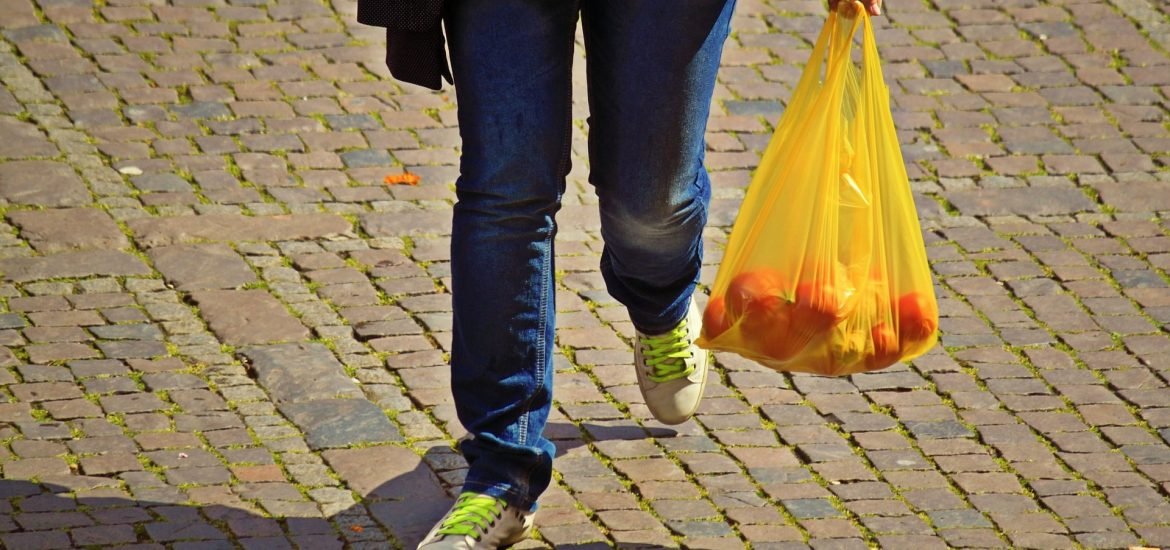
In light of the UK leaving the European Union, member states will be asked to increase their contributions to Brussels. In a statement to the press, regarding plans to implement a plastic tax to offset these losses, the German EU Budget Commissioner Günther Oettinger also added that the union “should learn from the positive outcome we have seen in countries like Ireland.”
After introducing a plastic bag tax, the country generated €200 million over a 12-year period and also reduced the presence of bags in the environment from 5% of litter pollution to 0.13%.” After backlash against the idea of a general plastic tax, the European Commission did not include the idea in a press release on Tuesday. It however underlines the important action it already took to reduce plastic bag waste.
And Brussels is not the only one discussing this topic. Theresa May may have left out the point about an increase in tax revenue, but she does insist that taxing plastic products will help protect the environment. May underlined that she want to see plastic-free supermarket shelves, and added: “In years to come, I think people will be shocked at how today we allow so much plastic to be produced needlessly.”
Environmental groups are cheering the move on both sides, as plastic bags in particular have long been seen as less eco-friendly than its alternatives. However, upon closer inspection the answer isn’t that conclusive at all.
EU Commissioner Oettinger, in his quote, had brought up the example of Ireland, which introduced a plastic bag tax years ago. In a 2008 research paper by the Connecticut Office of Legislative Research found that the measure had unintended consequences. It notes that retailers experienced a large increase in bin liners. In an article by the Irish Examiner from January 23, 2003, the paper had recorded that food retailers experienced a “77% increase in the sale of foot-pedal bin liners. Other bin liner sales increased by 75%.” Managers of plastic bag producers were making workers work double shift in order to keep up with an increase in demand of up to 400 per cent.
This Irish experience lead a 2005 impact assessment in Scotland to conclude that all plastic bags would have to be taxed (including biodegradable ones), but that there would indeed be a large increase in bin liner sales, which would be unpreventable. In Australia, a government study estimated the bin liner sales increase between 50 and 80 per cent.
If the reduction in plastic bag consumption is offset being a considerable increase in bin liner sales, which need more energy and crude oil to produce, then the environmental impact should already be questionable. But it doesn’t end there.
In 2011, the UK’s Environment Agency released a report on the environmental impact, use and reuse of plastic bags and of notable alternatives. The report underlined that: “The results were intended to inform policy decisions with regards to plastic bags and enable decision making.” (p.69) In turns out however, that the government has done nothing of the sort. The report lays out that the “global warming potential” of each bag meant that in order to efficient, paper bags would have to be reused 4 times, and cotton bags a whole 173 times (p.33). However, the same paper puts the reuse of paper bags under “single use”, and cotton bags at 52. This means that even if consumers were to be greatly educated on the issue, and would, as a result, double their reuse of cotton and paper bags, then we still wouldn’t break even on the environmental impact of plastic bags. In essence, this means that our use of alternative bags is actually worse for the environment than plastic.
For a research paper that was intended to be put to use as evidence for public policy-making, the government surely did a poor job.
Public policy functions much like the choices individuals make in a store: chosen one options comes at the cost of your next-best alternative. This is equally true for the legislation regarding plastic bags. Nobody is claiming that plastic bags are inherently good for the environment. And yet, ignoring the environmental impact of comparable alternatives, just to implement a feel-good public policy, isn’t the way to go.
It stands to reason that when we talk about the impact of consumer behaviour on the environment, then we need to look at actual consumer behaviour to measure if our policy is a good or a bad idea. Because if we don’t do that, then we are merely acting on subjective feelings.
EU and UK plastic taxes are not the right policy. They are not only an inconvenience for consumers, their positive environmental impact isn’t quite what it’s made out to be.
Bill Wirtz is a Policy Analyst for the Consumer Choice Center.
This post is also available in: FR (FR)